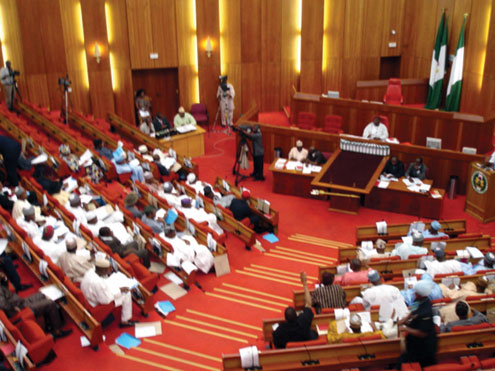Naira Slide Attributed to Capital Outflow
Renaissance Capital Group (RenCap) has attributed the drop in the value of the naira, Nigeria’s local currency against the US dollar in recent times to capital outflow from the Nigerian economy.
The international Investment and Financial management firm stated this in a Research Report titled: “What’s Happening to the Naira?: Fundamentals do Not Support a Weak Naira,” made available to THISDAY Thursday.
But RenCap expressed optimism that the naira would recover its strength once the present uncertainty surrounding the forthcoming elections dries up.
The local currency has been under intense pressure since last month following increased demand for the dollar. The very strong demand for the green bank which had been very visible at the Central Bank of Nigeria’s (CBN) regulated Wholesale Dutch Auction system (WDAS) pulled down the value of the naira against the dollar as it traded as high as N158/$1 at some segments of the forex market.
The CBN had said that the rising demand for the greenback was “temporary” and reflects fears of violence in the run-up to the elections.
RenCap showed that although the naira has depreciated 3.3 per cent year-to-date against the dollar, the currencies of its oil-exporting peers’ the Russian rouble and Kazakh tenge (Kazakhstan) had appreciated 6.2 per cent and 1.1 per cent, respectively.
RenCap said: “While we acknowledge that the official exchange rate has diverged significantly from the budget exchange rate of NGN150/$1, we maintain our view that fundamentals do not support the devaluation of the naira. Nigeria has a current account surplus. At an estimated 7 per cent of 2010 Gross Domestic Product (GDP), it may be smaller following revisions, but it is a positive
balance, which implies that the current account does not require capital inflows to finance it.
“Concerns have been raised about the impact of an oil price of $115/bbl on the cost of importing refined fuel in an economy that is so heavily dependent on generators. But as refined oil constitutes less than 10 per cent of total imports, whereas crude oil makes up 95 per cent -plus of exports, these concerns are overdone, in our view. A strong oil price should favour the naira.”
The firm argued that the $3bn recovery in reserves since the beginning of the year to $35.2bn as of 16 March weakens the arguments for the devaluation of the naira, saying that the CBN position on the naira should be taken into consideration.
Source : Thisday








